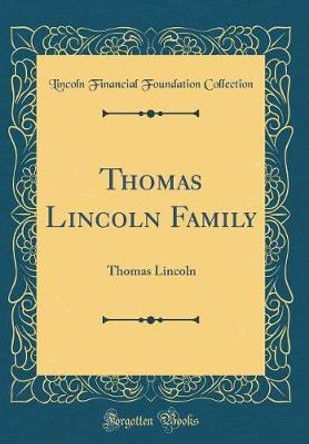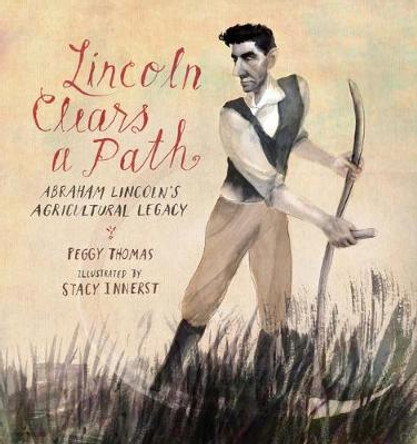Description
Lincoln is generally regarded as a very morally virtuous person. Lincoln's Ethics addresses the question of whether Lincoln deserves this reputation.
About the Author
Thomas L. Carson is Professor of Philosophy at Loyola University, Chicago. He is the author of three other books: The Status of Morality (1984), Value and the Good Life (2000) and Lying and Deception: Theory and Practice (2010). He is also the co-editor (with Paul Moser) of two anthologies: Morality and the Good Life (1997) and Moral Relativism (2001). Carson was previously a member of the editorial boards of American Philosophical Quarterly, Public Affairs Quarterly, the Journal of Happiness Studies and Business Ethics Quarterly.
Reviews
'Lincoln's Ethics is a brilliant, systematic, carefully argued philosophical investigation into the nature and justification of Lincoln's political decisions and reasoning. It is broadly accessible and will reward the general reader as well as experts in philosophy and history and those of us who are fascinated by the sixteenth president of the United States of America. Carson has produced what should serve as a role model for future work that aims to integrate philosophy and history.' Charles Taliaferro, Chair of the Department of Philosophy, St Olaf College, Minnesota and author of Evidence and Faith: Philosophy and Religion since the Seventeenth Century
'Historians and theologians have long grappled with the moral aspects of Lincoln's character and political actions. In this fresh, thoughtful, and stimulating examination, Thomas Carson now brings an applied philosopher's judgment to bear on the private man and the public figure. Under the scrutiny of utilitarian theory, viewed through the lens of moral luck, and assessed for the goodness of his character, Lincoln, in Carson's Lincoln's Ethics emerges, for the most part, ethically unscathed.' Richard Carwardine, President, Corpus Christi College, Oxford
'This book is one of the first assessments of Lincoln's moral values and virtues written by a philosopher who is an expert in moral relativism ... Carson concludes that Lincoln was a singularly good and morally virtuous person, despite some honest errors of judgment, and Carson's portrayal of Lincoln corresponds to the figure of US history he is normally pictured as: a great man ... Recommended.' R. J. Havlik, Choice
'Lincoln folklore rests on the ... premise that he was a good person. Politicians ... continue to lay claim to Lincoln and his legacy. Their ideal, however, is no more nuanced than the stick figure portrayed in grade-school pageants. Carson comes to Lincoln from a more complex, and certainly more interesting, perspective ... [Carson] opens with an investigation of Lincoln's long list of potential moral sins. His slow embrace of abolition, support of the Fugitive Slave Law, and interest in resettling American blacks in Africa ... In the book's second half, Carson turns to Lincoln's character. He judges the rail-splitter's admirable qualities - kindness, humor, generosity, and, most notably, mercy - against his personal failings as husband, father, and son. The most important work in this section, if not in the entire book, is Carson's examination of Lincoln's views on slavery and race ... Against each line of potential criticism, Carson offers a spirited defense.' John Herron, Chronicle of Higher Education
'This is a fine-meshed book on Lincoln, very thoroughly researched, sparkling with hundreds of Lincoln's own sentences ... Professor Carson is to be very much commended for his years of work in a close, close study of Lincoln, for his diligent pursuit of objections and charges against Lincoln, and for his clarity of exposition. Lincoln buffs will find a lot to chew on, and they will rejoice once more in the pleasures of going back to Lincoln again and again.' Michael Novak, The Review of Metaphysics
'Not to be missed is Carson's examination of Lincoln's views on slavery and race. For the attacks against Lincoln on these issues, the author gives a spirited and highly credible defense. Those who are interested in Lincoln will be going back to this book time and time again.' Frank J. Williams, Civil War Book Review
'What is special about Carson's book is the intellectual precision and nuanced discrimination he brought to the book as a trained philosopher. ... Carson's ability to see Lincoln's policies in the light of different philosophical traditions, and his ability to make fine but telling distinctions between different developments of the key themes, mark his book as the work of a historically literate philosopher and bring to the discussion the precision and intellectual discipline that only a philosopher could provide.' John Burt, The Historian
'... Lincoln's Ethics has much to ponder and to debate. The monograph is organized systematically, and its prose is lucid.' Bertis English, The Journal of African American History
Book Information
ISBN 9781107030145
Author Thomas L. Carson
Format Hardback
Page Count 450
Imprint Cambridge University Press
Publisher Cambridge University Press
Weight(grams) 780g
Dimensions(mm) 235mm * 163mm * 30mm








